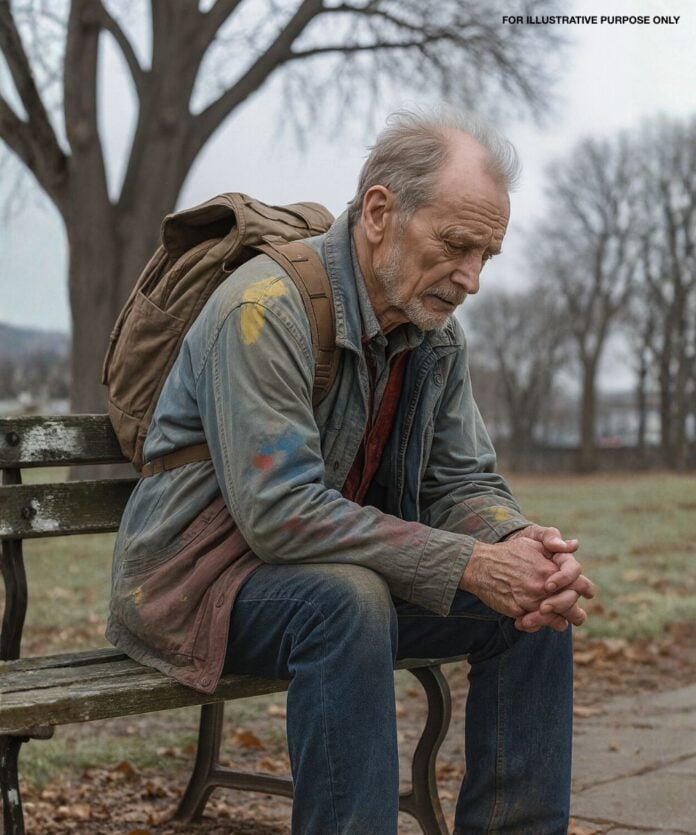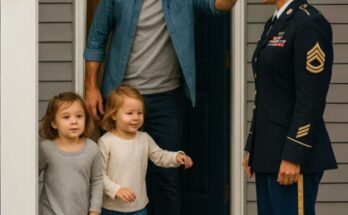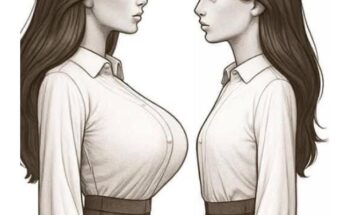Harold Whitman had spent his life teaching others about the power of legacy. As a high school history teacher in Ohio, he believed that the truest way to live on was through kindness — through the words we share, the lessons we leave, and the love we pass along.
After retiring, life slowed for Harold. His wife, Eleanor, the steady warmth beside him for more than forty years, had passed after a long illness. To fill the quiet, he devoted himself to his grandson, Ethan. They spent afternoons building model airplanes, reading old maps, and talking about how every generation shapes the next.
But in his son’s home, where Harold had moved after Eleanor’s passing, warmth was in short supply. His son, Michael, worked long hours as an accountant. His daughter-in-law, Rebecca, managed the household with precision that left little room for Harold’s slow steps or soft humming of Sinatra tunes while he made his morning coffee.
At first, Rebecca tolerated him. She smiled politely when he forgot to rinse a cup or left his newspaper on the kitchen table. But soon her sighs grew sharper, her patience thinner. One night, Harold overheard her whisper to Michael, “He’s a sweet man, but we’re not running a nursing home.”
Michael said nothing. That silence cut deeper than any harsh word could.
So before dawn, Harold packed a small suitcase — a framed photo of Eleanor, his reading glasses, and the wool coat she had knitted the winter before she passed. Without a word, he slipped out into the cold. He told himself it was better this way, that a man shouldn’t stay where he’s become a burden.
Snow fell softly as he wandered through the sleeping town. Every corner carried a memory: the diner where Michael spilled his first milkshake, the bookstore where Eleanor bought him a fountain pen for his first teaching job. He walked until his legs ached and finally settled on a park bench — the one where he used to sit with Ethan to feed the ducks.
There, under the pale light of dawn, Harold closed his eyes. The park was quiet except for the rustle of the trees and the faint sound of water beneath the ice. He didn’t know what tomorrow would bring, only that for the first time in years, the air felt still.
When morning broke, a familiar voice pulled him back.
“Mr. Whitman? Is that really you?”
He looked up and saw Margaret Lewis — his college sweetheart from a lifetime ago. Her hair was silver now, her hands lined with years of work as a nurse, but her eyes held the same gentle kindness he remembered.
Without hesitation, Margaret brought him to her cozy yellow house near the edge of town. She didn’t press for details. She simply made him tea, tucked a blanket around his shoulders, and said softly, “You’ll stay here until you’re warm again.”
Days turned into weeks. Harold began to find purpose again. He fixed her squeaky door, mended the heater, and coaxed her old clock to chime for the first time in years.
In the evenings, they’d sit by the window, swapping stories about students they’d taught, neighbors they’d known, and all the years that had slipped by like pages in an old book.
Then, one winter evening, while changing a light bulb, Harold’s heart gave out. He woke in a hospital bed, tired but alive. The doctors warned that his heart was fragile — strained by stress and age.
Margaret never left his side. She read his favorite poems aloud and played the Sinatra songs he used to hum over morning coffee.
One morning, Harold whispered, “I wish I could see Ethan again — just once.”
Margaret didn’t hesitate. She called Michael.
A few days later, Michael arrived alone. His face was pale, his eyes hollow. Rebecca had left him, taking the house and the cold silence that had long filled it. He stood in the doorway of the hospital room, guilt weighing on every word.
“Dad,” he said quietly, “I don’t deserve to be here.”
Harold smiled faintly. “You came. That’s enough.”
Michael sank into the chair beside him, tears streaking down his face.
“I should’ve stood up for you,” he said. “I should’ve been the kind of son you were to me.”
Harold reached for his hand. “Then be that kind of father to Ethan. That’s how you make it right.”
They sat in silence, a father and son bound again not by words, but by the love that had never truly left. Outside, snow drifted across the windowsill. Margaret stood nearby, holding Harold’s other hand, her eyes filled with quiet strength.
Later that night, Harold’s breathing slowed. His last smile was small but peaceful, as though he’d finally found his way home.
The next morning, Michael found a letter on the nightstand — written in Harold’s neat, steady handwriting:
“Don’t grieve the years we lost, son. Build the ones you still have. Love is not what you say at the end — it’s what you do while there’s still time.”
Every winter since, Michael and Ethan return to that same park bench where Harold once sat beneath the falling snow. They bring a small bag of breadcrumbs, feed the ducks, and talk about the man who taught them both that love doesn’t fade — it lingers in every act of kindness, in every lesson shared, and in every quiet moment when memory and love meet again.



